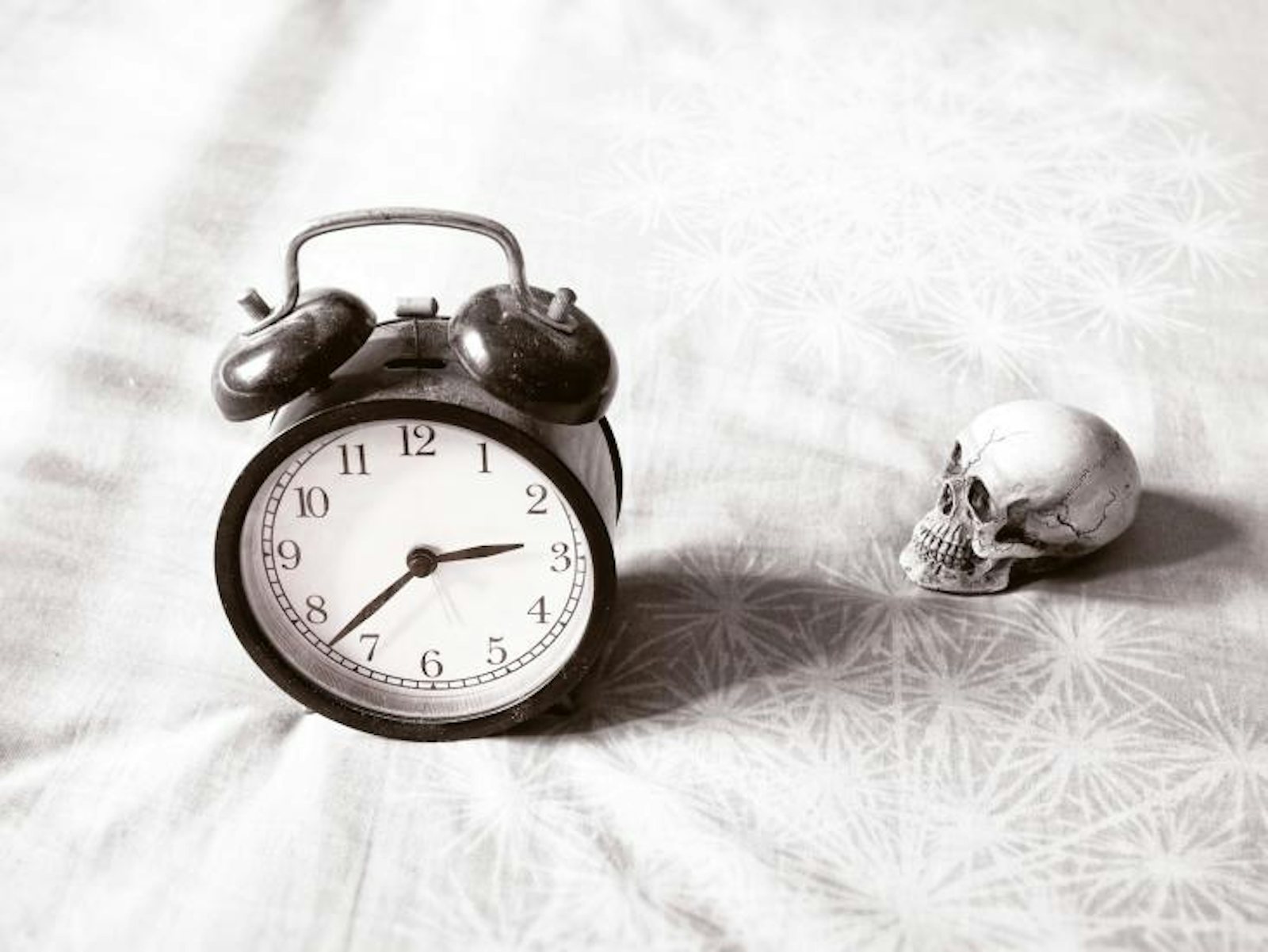Traveling induced jet lag isn’t the only thing that causes untimely fatigue. Ignoring your biological rhythms can lead to chronic exhaustion, too, something that feels so much like jet lag that Till Roenneberg and his team, at Ludwig-Maximilian University, in Munich, Germany, coined the term “social jet lag” in 2006. It occurs when there’s a mismatch between your biological clock and your social life. And not only does it make you tired, it may be to blame for many of today’s ailments.
In 2012, Roenneberg and colleagues studied the sleep-wake patterns of more than 65,000 people. They found that 80% of those who had jobs also used an alarm clock. The problem with that, chronobiologists say, is that our own bodies’ clocks are far better for telling us when to wake up.
Unlike the rigid global clock, whose time zones are an artifice of our connected world, our internal clocks vary from person to person, and even within individuals as they move from childhood into puberty, adolescence, and adulthood. The discrepancy between our internal, biological clocks and our external, social clocks peaks around age 20. But the ongoing tug-of-war between external and internal time can affect everyone from school-aged children—whose schedules are dictated by their school districts—to those of retirement age and beyond. People stay up late, or sometimes not; use alarms to wake up early, or snooze it to sleep in; and then spend weekend mornings trying to make up for the sleep they missed, or they don’t. The result? A massive sleep debt and an off-kilter internal clock.
Each of us has a circadian clock that uses a roughly 24-hour rhythm that coordinates with the Earth’s light-dark cycle. Light sensitive cells in the eye’s retina send information to the brain’s master clock, which readjusts daily. The master clock regulates systemic cues like body temperature, eating patterns, and even fluctuating hormone levels, which are then used by distant, peripheral cellular clocks throughout the body to fine-tune their respective molecular pathways so as to be in synchrony with the master clock phase. The resulting, cyclical patterns can be seen in everything from our behavior to our blood-sugar levels. And when the coordination persistently goes awry, the phase difference between the master and peripheral clocks can manifest as chronic, degenerative diseases.
Initially, scientists thought these broken circadian clocks were most concerning in night-shift workers, flight attendants, and frequent flyers—people whose jobs resulted in large and regular disruptions to their sleep-wake timing. But research seems to be revealing that, to some degree, all of us are being affected.
Last month, a group at the University of Pittsburgh showed that, even in daytime workers, there is a link between a disruption in circadian rhythm and known metabolic risk factors for obesity, diabetes, and cardiovascular diseases. Roenneberg was not surprised. “We had already known from various epidemiological and experimental studies that metabolism—and especially glucose/insulin metabolism—is challenged by living against one’s clock,” he told Reuters. By regularly changing the times we sleep, wake, and eat, we break the synchrony that our master clock sets for the peripheral clocks throughout the body. Instead of following the master clock, they align with our social clocks, disrupting the highly interconnected and complex pathways of human physiology.
This link arises because disruptions in circadian rhythm muck up our microbiome, bacteria in our gut that help us digest our food. Beyond diet, they may also be affected by our mealtimes. A disturbed host’s clock disrupts the microbes’ 24-hour rhythm—reflected in their composition and overall function—according to Christoph Thaiss, an immunologist at the Weizmann Institute of Science in Rohovot, Israel. When the disruption is chronic, it can contribute to metabolic imbalances that could ultimately lead to glucose intolerance and obesity.
Our interrupted internal clocks are also being tied to a number of serious mental illnesses, such as Alzheimer’s and Parkinson’s. Recent studies suggest that the very hallmarks of these conditions, which are caused by the accumulation of certain proteins in the brain, might be the result of a disturbed clock. Poor sleep, of a fragmented or short duration, in older adults can cause a disrupted circadian rhythm that, in turn, leads to increased accumulation of toxic beta-amyloid proteins—a known precursor of Alzheimer’s disease.
When it comes to the circadian clock and cancer, there’s a completely different cause for concern. Numerous studies in mice and humans are revealing that circadian-rhythm disruption suppresses clock-controlled tumor-suppressor genes even as it stimulates mutations in other genes that can lead to cancer. For that reason and others, the World Health Organization listed night-shift work as a carcinogen in 2007.
These consequences of social jet lag are like an SOS signal, sent to help spur a shift in when we sleep, and for how long. As long as our sleep cycle is regimented, not by knowledge of our biological clocks, but by the expediencies of our social ones, we won’t be at our best—physically or mentally. Drastically resetting our clocks as often as we do seems to be making us pay a toll: The indiscriminate exposure to unnatural light, and sleep that is ever-more disconnected from the earth’s cycle, has led to malfunctions that may be causing a plethora of diseases.
Time is ripe to customize the social clock to our specific needs. This demands, first of all, an acknowledgment that better sleep is not a luxury, but a necessity—one that will benefit us both at our jobs and our relationships.
After receiving her PhD in plant molecular biology, Lekha Bandopadhyay subjected herself to some postdoctoral research experience at Bose Institute, India, and Gregor Mendel Institute, Austria. At present she is exploring the wonderland of science communication.






























